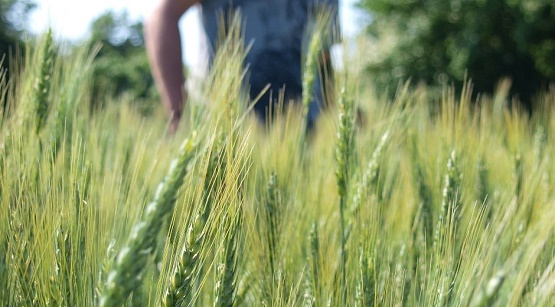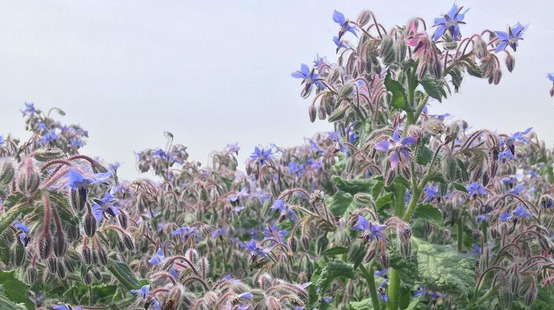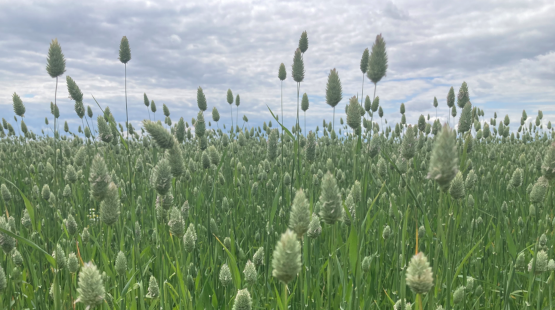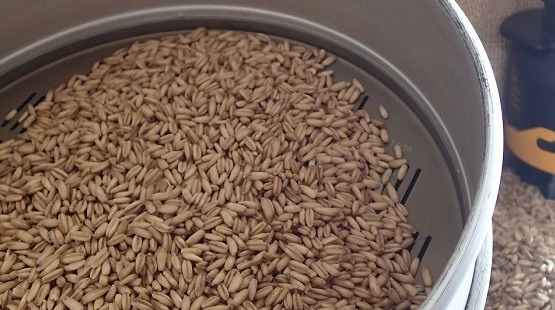Red Wheat Agronomy

Agronomy
Anywhere in the UK.
Few limitations. Red Wheat prefers moisture retentive land. It is not suited to drought prone sands. It does however like black soils.
March through April. The highest and most consistent yields have come from late March sowings. April sowings are common.
The same as conventional Spring Cereals.
Red Wheat needs a firm seed bed which means min-till or direct drilling are ideal.
Typically, 150 - 200 kg/ha depending on sowing date and TGW. Red wheats produce a small berry - the TGW can be as low as 30gm
As for conventional wheat.
Red wheats require a full growth regulator program.
Red Wheats are generally very weak on Mildew and Yellow Rust, so an early intervention to start the protective programme is required for Autumn sown crops (T0). This will ensure that crops reach T1 timing (late March) in good order and allow crops to 'start clean'. Spring sown crops without a Tripod seed treatment will need to commence the fungicide program when the crop has 3 leaves. The aim is to keep disease, especially Mildew and Yellow Rust out of the crop from day one.
Red Wheat varieties have proven resistance to head blight.
All Spring wheats are susceptible to Ergot. However, Faller is a very early, "closed" flowering variety which does mean it is less susceptible than most Spring wheat. However, in some years, many samples can be contaminated with Ergot. The advent of mobile “Colour Sorting" machines has meant that Ergot removal is now quick (circa 10 -20mt/hour) and good value (£10 -12/mt). The added benefit is that losses are very low (1-4%) compared with gravity separation and very thorough.
If the pH of your fields growing Red wheat lie above or below pH 6-7, foliar feeding with appropriate nutrients could be beneficial.
Slightly shorter than conventional Spring Milling Wheat.
New to the UK, Faller, was added to the UK National List in June 2018. It has an 8-10% yield advantage over the original Red Wheat variety AC Barrie and 5% over Infinity
Faller HRSW is named in memory of James (Jim) Faller (1953-2006) who served as a technician for the NDSU Hard Red Spring Wheat Breeding Program for 29 years. Jim took great pride in his role to serve the North Dakota wheat farmer and was instrumental in the development of numerous varieties that have greatly benefited the agricultural community.
Red wheats are very early harvesting varieties. They would normally be approximately 2 weeks earlier to harvest than a comparable conventional Spring wheat.
The usual Cereals set up is OK for Red wheats. The terminal floret can be hard to thrash, so the combine has to be set aggressively to achieve a clean sample (de-awning plates may need to engaged).
Red wheats are HARD milling Wheats, so moisture meters usually used for SOFT Wheat will often be inaccurate. For example, a Protimeter setup for soft Wheat reads 0.7% high. This can cause problems at the mill intake. Check with your moisture meter manufacturer to ensure you have the current calibration for testing hard Red Wheat to avoid problems.
Likely range 3.0 - 5.5 t/ha depending on the variety and soil type.
The same as conventional Spring Milling Wheat.
Detailed below are the products listed by the Health and Safety Executive as having an Extension of Authorisation for a Minor Use of a Plant Protection Product. (EAMU)
It is essential that anyone who needs to use a product in accordance with an Extension of Authorisation must read the text of the Extension of Authorisation before commencing any spraying operation. Links are provided below to the Authorisation document for each of the products.
All products below were Authorised at the time they were added to this list, while Premium Crops do regularly check the validity of the products and update the list accordingly, it remains the Grower's responsibility to make sure that the Authorisation remains valid at the time any product is used.
Moddus (trinexapac-ethyl) - Syngenta Crop Protection UK Ltd
Tempo (trinexapac-ethyl) - Syngenta Crop Protection UK Ltd
The above is a list of all products listed on the HSE website and as such does not represent Premium Crops' endorsement or recommendation for use.
Please note an EAMU does not ensure a product is safe to use.










